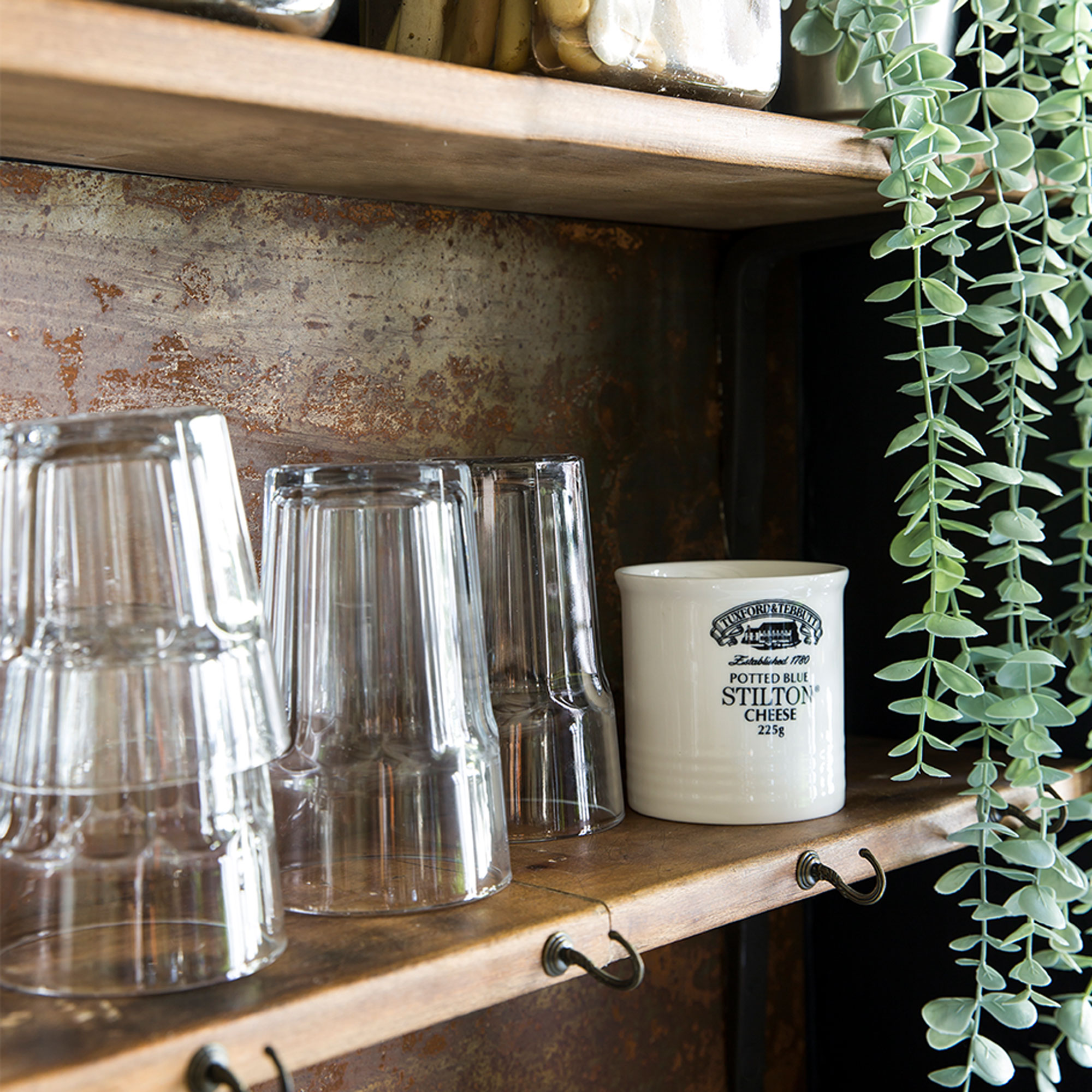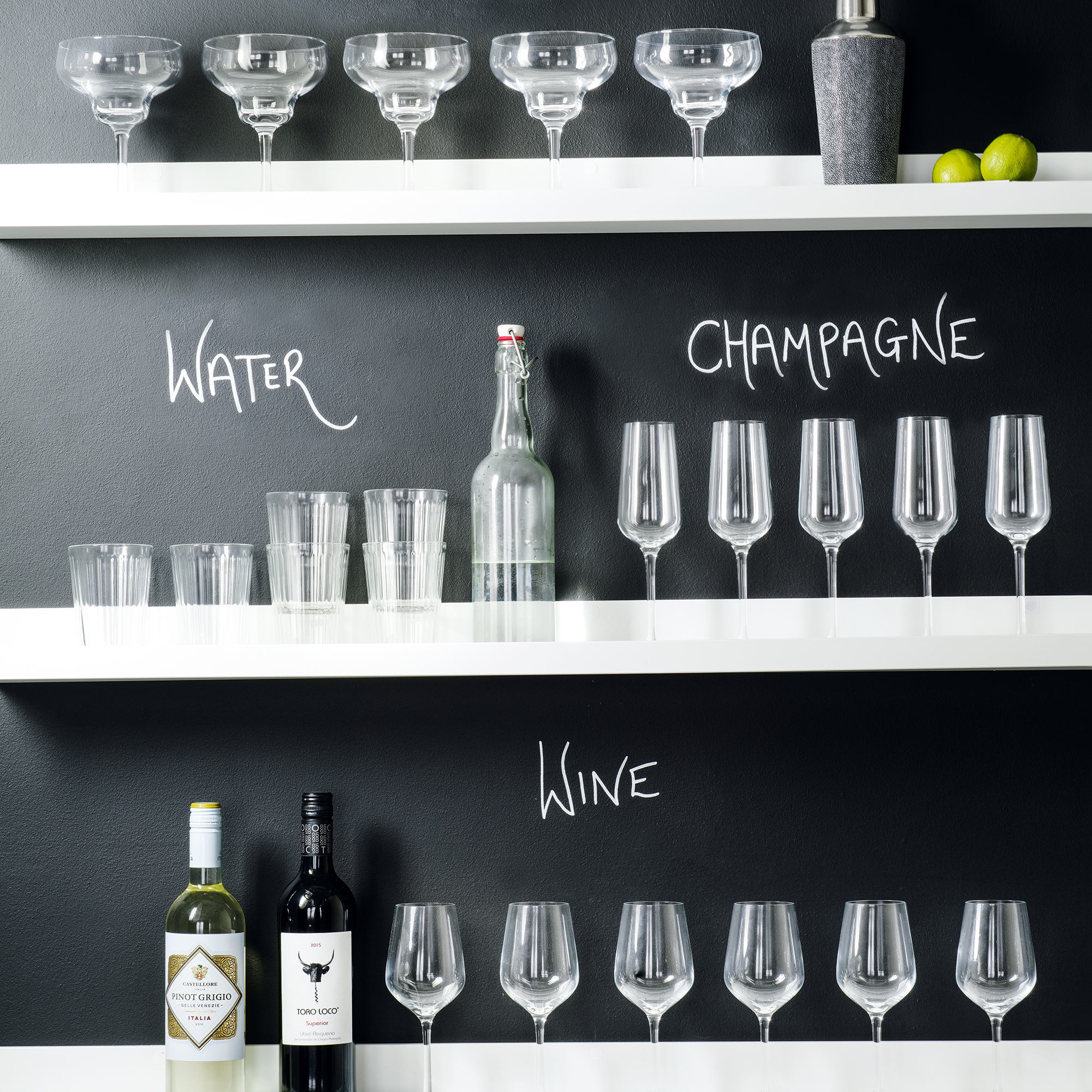
Hands up; who else is guilty of continuing to use a glass for a long time after it has been chipped? We’ll be the first to admit that this is something we do all the time; after all, an accidental chip isn't so bad, right?
At the end of the day, it seems a shame to simply throw away a glass from our kitchen just because it has a slight chip or dent in it. And that’s especially true if the glass is sentimental for some reason. Perhaps it was part of a wedding gift set, or a fancy wine glass someone got you for a birthday present?
Unfortunately – while it may be sad to part with the glass – it appears that chucking out a glass with a small chip could actually be a necessity for your health and safety, according to one expert.
Why you should never use chipped glasses
It may seem like a completely innocent thing to do, but as it turns out, a chip in your favourite glass could actually present a whole host of problems you’re not aware of. And that’s still the case even if yours has currently only got a small chip.
According to John Cutts, founder of MeandMyGlass.co.uk, a chipped glass presents a variety of potential issues that perhaps aren’t worth risking.
He explains that, while you may be certain you’ll avoid the chip in the glass when drinking from it, by continuing to do so, you’re running the risk of injuring yourself unknowingly.
'Many of us are unaware of the serious dangers drinking for a glass with a chip could cause - by continuing to drink out of the damaged glass, you are actually increasing your chances of cutting your lips, tongue or gums as well as even swallowing bits of glass.'

'The jagged areas of the chipped glass can be serrated and sharp which could cause minor injuries to your lips, tongue or gums if you continue to use the glass to drink out of,' he continues.
And, he warns, while the glass may appear safe, it may not be. 'Without even realising it, drinking from any glass that has been chipped could result in you swallowing shards. Even the smallest bits can be dangerous when swallowed and may cause issues to your mouth, stomach or intestines,' John says.
And that’s not all when it comes to the health issues; John also explains that, if you have a coloured glass or one with decorations on it, there’s a chance that the chemicals from this could leach through into your beverage if your glass also has a chip.
'Any coloured or decorated glassware could contain chemicals that are unsuitable for digestion and broken antique crockery may even contain lead paint,' he says.

Similarly, he explains that the crack or chip itself could harbour some nasties, no matter how well you clean your glasses. John says, ‘No matter how well the glass has been washed through, by hand or via the dishwasher, the crevices in the damaged area can quickly grow bacteria.' Who knew?
A chipped glass also runs the risk of breaking more easily than a non-chipped glass, even if it currently feels secure to you, and at no risk of breaking.
So though it may seem overly dramatic, the best way to handle a chipped glass is usually to throw it out (responsibly, of course), in order to avoid any health repercussions. 'Safely put it in the recycling bin,' John suggests.
Trust us this isn't just an excuse to indulge in shopping for new glassware, it's for your own safetly.







